David Sterling's 'deep concerns' over no-deal Brexit
- Published
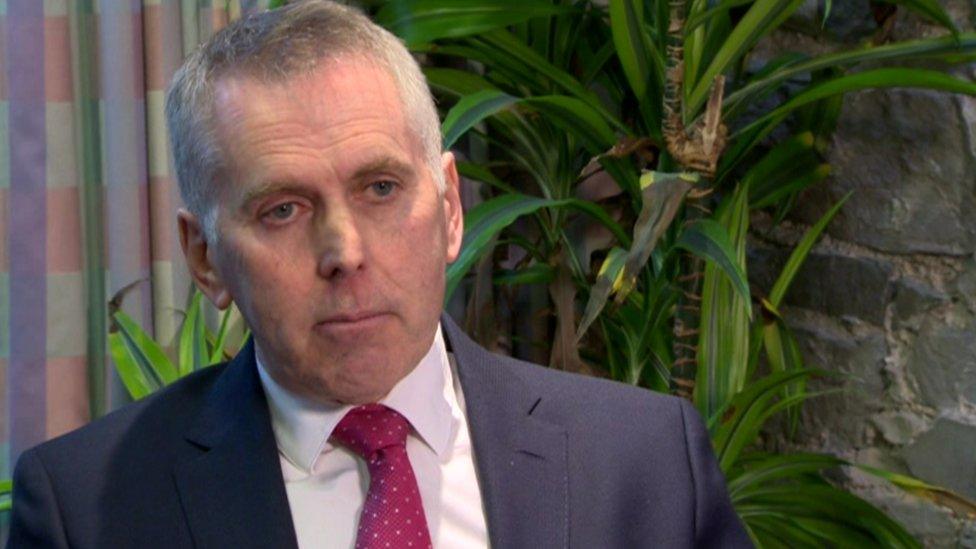
David Sterling took control of Stormont's finances in March
The head of the civil service in Northern Ireland has said he has "deep concerns" about the impact of a no-deal Brexit.
David Sterling said some agri-food firms could find it "impossible" to continue trading if they faced tariffs.
Mr Sterling also spoke about the challenges of preparing for Brexit without having any Stormont ministers.
He told diplomats in Brussels that NI's Brexit policy was effectively based on a two-page letter sent to the PM., external
It was sent to Theresa May by the then First and Deputy First Ministers Arlene Foster and Martin McGuinness in August 2016.
Northern Ireland has been without an executive since January 2017 after the governing parties, the DUP and Sinn Féin, split in a bitter row over a flawed green energy scheme.
"Before the collapse of the executive, there had been agreement among ministers that they should write to the prime minister about the outcome of the referendum and subsequent engagement with the British government," Mr Sterling told diplomats at the European Policy Centre.
"This two-page letter is all we have by way of ministerial direction to help us deal with the myriad of issues thrown up by Brexit.
"Despite its brevity, it has been enormously helpful to us as civil servants because, it has given us a basis on which to engage with Whitehall departments on the way forward".
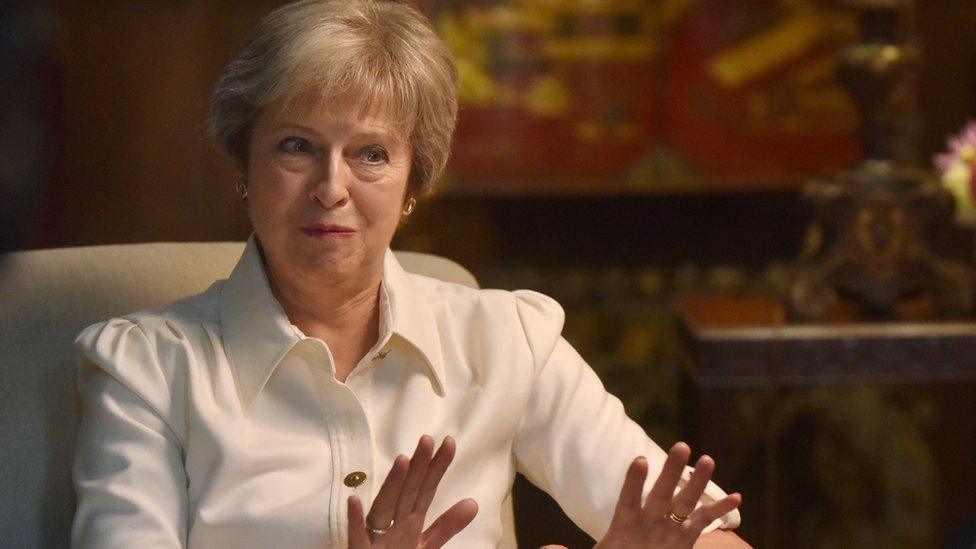
Theresa May said the people of Northern Ireland deserved to be listened to in the Brexit negotiations
He told the diplomats that he could not "stray into political territory" but added that the civil service had "deep concerns" about the risk of a "chaotic exit from the EU".
"The competitiveness of our businesses, many of them micro-businesses with low margins, would be damaged by any scenario that requires them to complete declarations costing £20 to £55 a time for customs, whether that is between Great Britain and Northern Ireland or between Northern Ireland and Ireland," he said.
He also hinted that some businesses could pull out of Northern Ireland in a no-deal scenario, saying he was particularly conscious of what he called "larger and highly-mobile" firms.
Mr Sterling took control of Stormont's finances in March, due to a failure to pass a budget for the financial year following the collapse of the devolved institutions.
Backstop solution
Later this week Prime Minister Theresa May will meet other EU leaders in Austria.
Speaking to BBC Panorama, Mrs May said her so-called Chequers plan was the only way to insure there would be no hardening of the Irish border.
The prime minister said there needed to be friction-free movement of goods with no customs or regulatory checks between the UK and the EU.
She said the people of Northern Ireland deserved to be listened to in the Brexit negotiations.
Meanwhile, the Democratic Unionist Party said it would judge any new proposals from the EU on a so-called Brexit backstop according to its core principle, which is that there should be no internal borders within the UK.
The backstop solution is an arrangement that will apply to the Irish border if a wider deal or technological solution cannot keep it as frictionless as it is today.
DUP MEP Diane Dodds told the BBC that if the EU's new suggestions merely tinkered with its previous ideas, they would still be unacceptable.
Mrs Dodds said a border was a border whether it was at Larne, Belfast or Liverpool and her party remained adamant that Northern Ireland must leave the EU on the same basis as the rest of the UK.
- Published7 August 2019
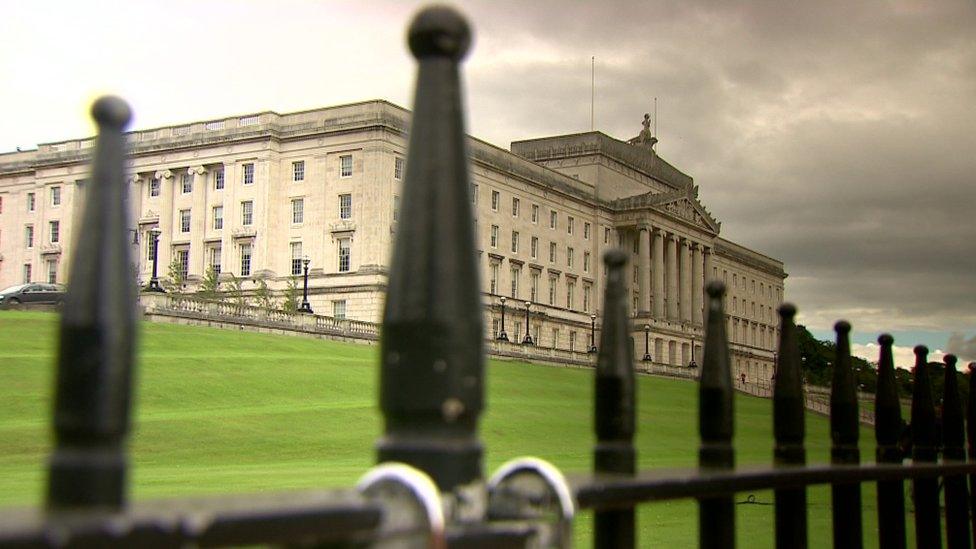
- Published29 March 2017
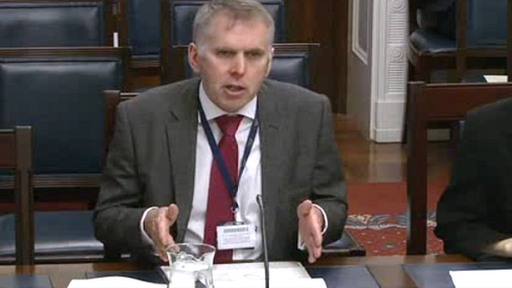
- Published9 January 2018
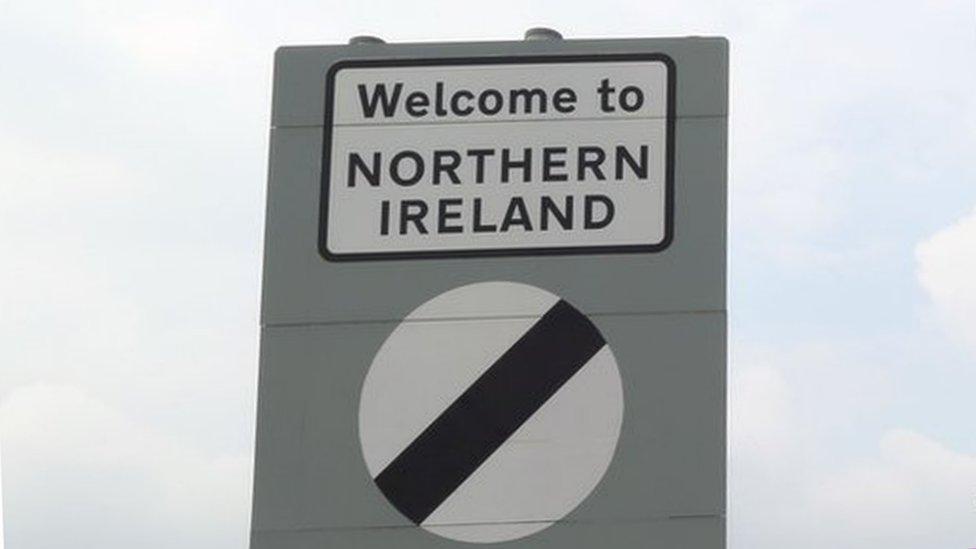
- Published16 September 2018
